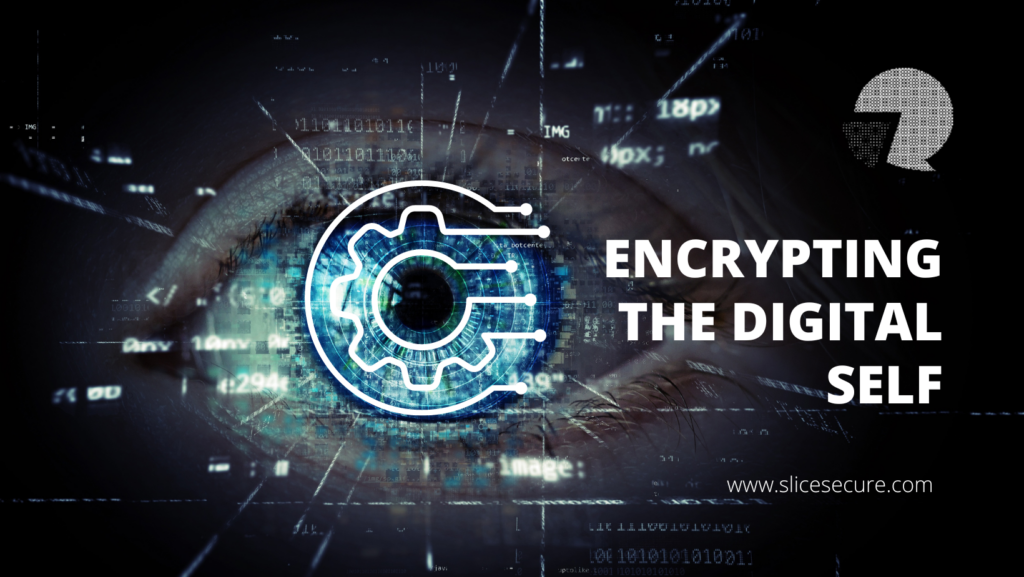In this day and age there is a growing need for redefining social concepts such as independence, autonomy, sovereignty and self in the context of the digital realm. The interconnectedness of the digital with the ‘’real’’ has ushered us into a confused state of duality between our physical self and digital self. And how do the old norms apply to this new state of existence? How does that affect our ability to govern ourselves, our actions and consequences? And more importantly, how do we maintain the integrity and privacy of our lives?
Throughout the digital realm, there are no interactions for which one may say – ‘’this is between you, me, and god watching from above’’, because now that all-seeing third party is surely existent and is very interested in what you have to say. Our interactions in cyberspace influence the construction of our identity in profound ways, every input and interaction remains permanently recorded, retrievable and may be subjugated to inquiry and manipulation at any point in time. We are constantly moving within one code or the other and are unknowingly feeding algorithms with information and data which in turn become knowledge about us, and for all intents and purposes – knowledge is power.

Relevance of autonomy and sovereignty
In order to stop allowing ourselves to be exploited for undisclosed purposes, we most certainly have to recognize the relevance of autonomy and sovereignty of digital users – meaning our independence or the degree of control we have interacting with products or services. The loss of sovereignty in a wider sense means the loss of authority over one’s actions and decisions, in cyberspace our authority is undermined by deceptive practices and dark design patterns that maintain the illusion of autonomy whilst influencing our decision making at its very core.
After Snowden, there is much to reveal on how disseminating digital information is going to influence our states of mind and the world. Now there are two means of obtaining data sovereignty – weak sovereignty and strong sovereignty. The approach of weak data sovereignty refers to digital rights protection initiatives of the private sector and the sovereignty of its users. And strong data sovereignty emphasizes a state-led approach with an emphasis on safeguarding national security. Both of those approaches centralize around the idea of a suzerain that provides us with our autonomy to choose, yet in doing so undermines our own personal capacity to be in charge of our destiny. Opposed to that should stand the idea of true sovereignty, where one is the owner, facilitator and administrator of his own data. Such an approach can be found in initiatives that stand for decentralized community networks and encryption software that breaks away from commercial and government standards.
Do we need protection?
So why do users need protection, is the question. Or rather, from whom? Do corporations respect user rights to make their own decisions and control their own data? How can we expect to be ethical by their free will, to protect our rights without some kind of balancing factor?
Companies can invade our online sovereignty through various means, often driven by their pursuit of profit and control over users’ digital interaction data. Common ways to do so include data collection and tracking, behavioral manipulation by leveraging said data, privacy violations, lack of transparency and accountability and monopolistic practices.
To counteract these infringements, individuals must advocate for stronger privacy protections, transparency requirements, and regulatory measures to uphold their rights in the digital age. Everyone has the right to make an informed decision, even in the digital realm and people must be in control of the technological systems they use.
Transparently creating effective interfaces is crucial if we want to have strong user autonomy.
The advocated practices that challenge the existing user autonomy imbalance created by „the big business objective“ prioritize user control with transparency on what kind of data they are collecting and using for what purposes. That includes the user’s option to change their minds, to modify their preferences. With this „ethical’’ approach, companies build trust and a positive relationship with their users through informed consent, which can still fall prey to manipulative design.
The other way to approach ethics in digital development and design is from the outset. While developing user interfaces, designers can analyze the impacts of user choice autonomy and well-being. They can research and consult with other experts in business, human rights groups to avoid doing any harm or exploiting their users even before publicly launching a project.
The responsibility of designers and developers in creating and disseminating digital content comes from their enormous power to influence our everyday decisions. That is why UX designers have to consider ethical principles when designing digital products. They must ensure creation transparency, inclusivity, user-centricity, and user privacy – an ethical product beneficial for all – users and companies.
We are living in a brave new world and our freedoms are limited on the Internet at this point in time, there are no two ways about it. Even with regulations, we are smothered with dark pattern advertisements and unsolicited data collecting, so we have to consider every action we take in the digital sphere, being aware that every click of the mouse is potentially crucial to our security and prosperity, now and in the future. It is up to us to create a fair new world instead, to the best of our abilities at least. Humanity needs truly user-focused and ethical programming which enables individuals to experience complete freedom and sovereignty in the digital sphere of being.